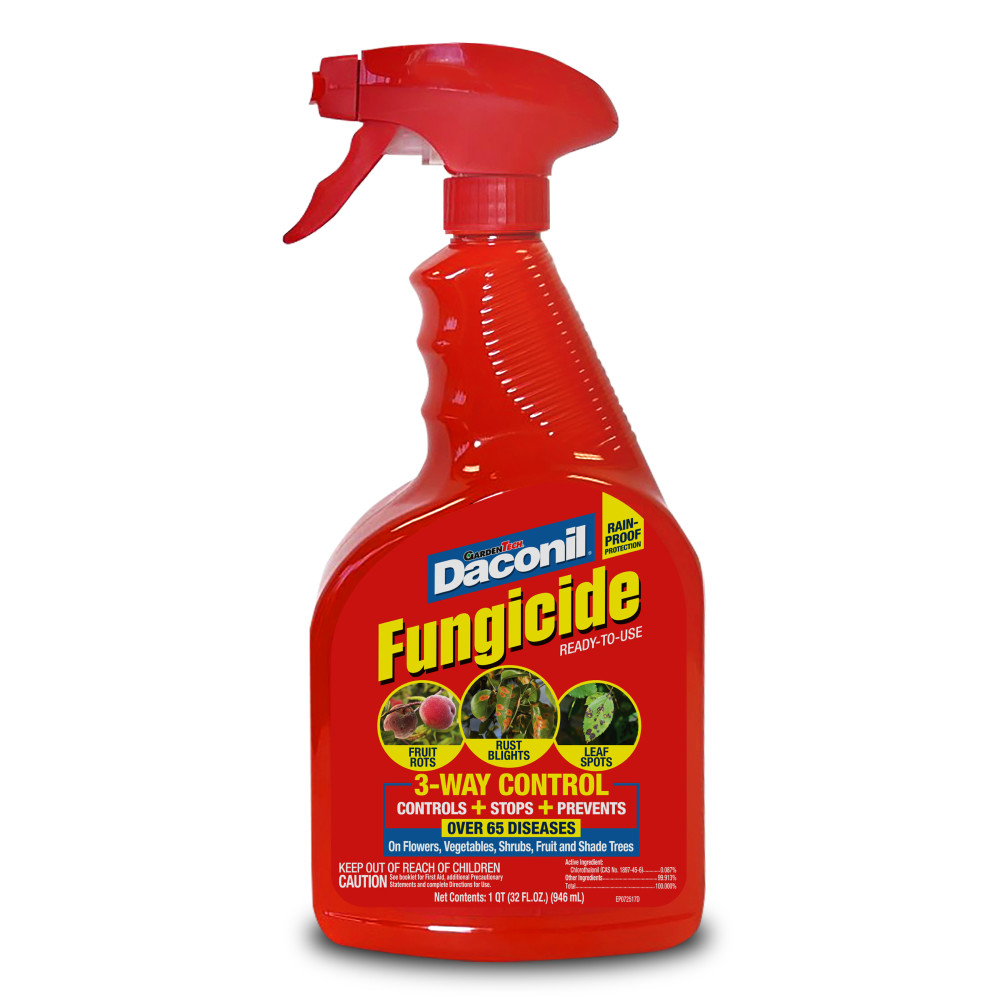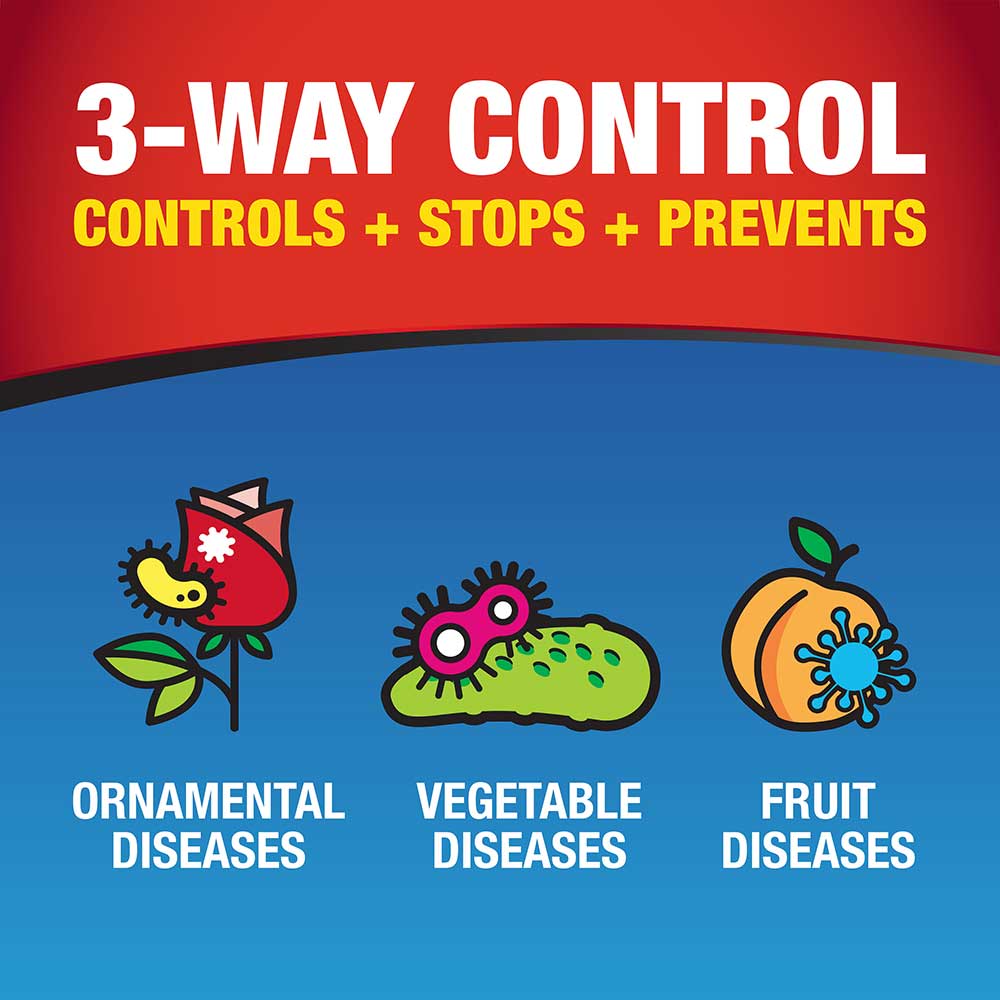Black Spot
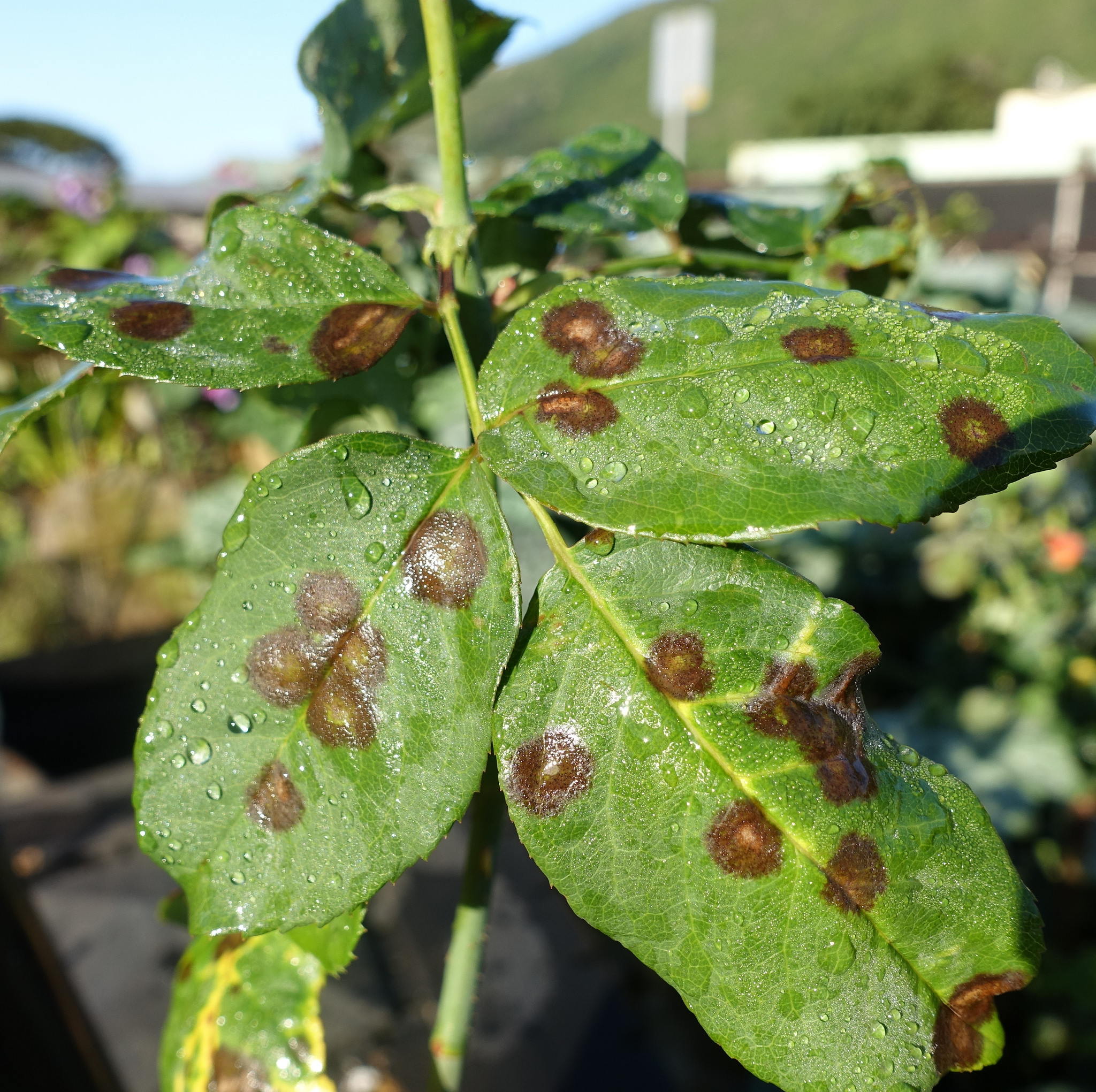

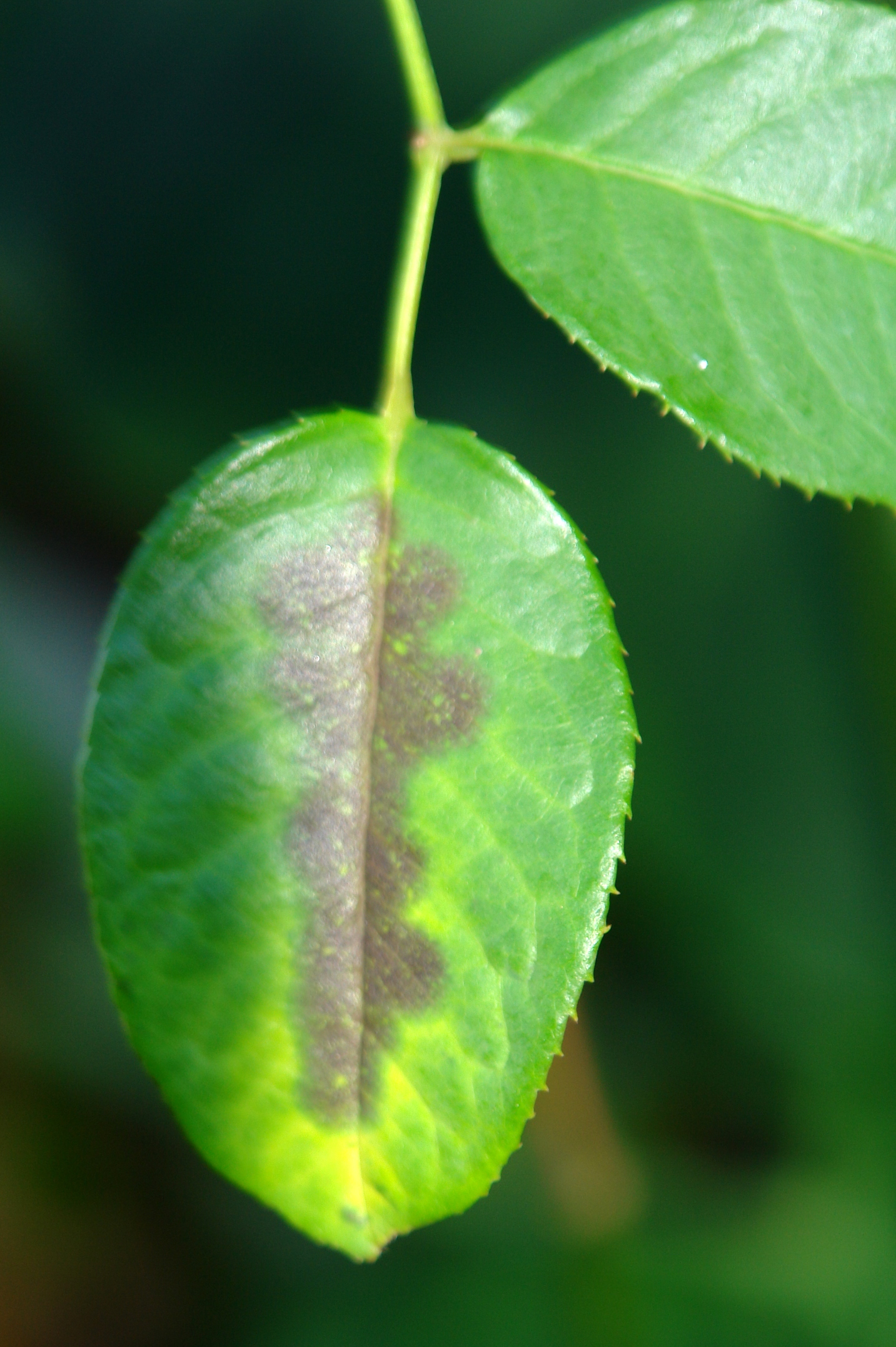
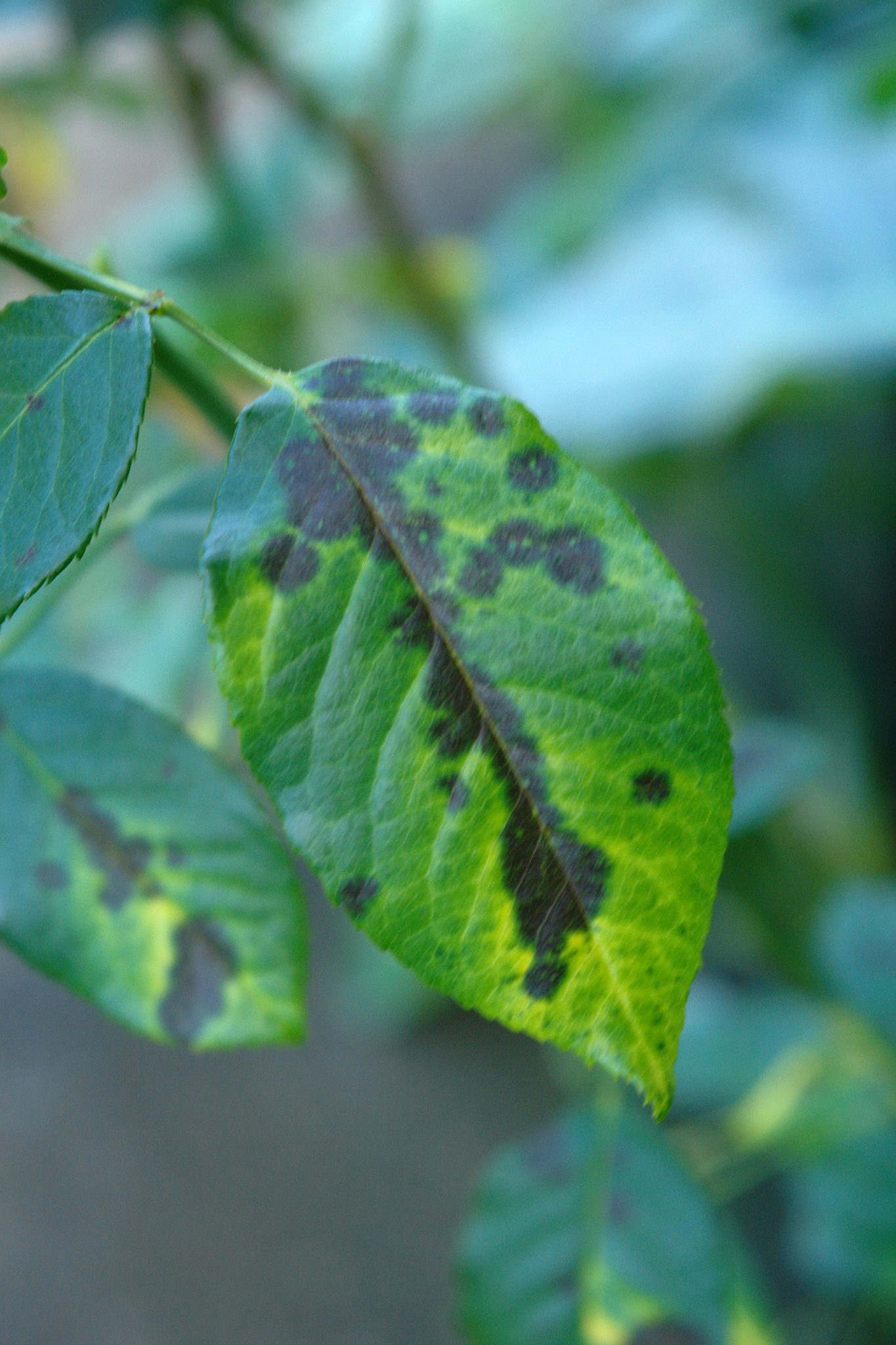
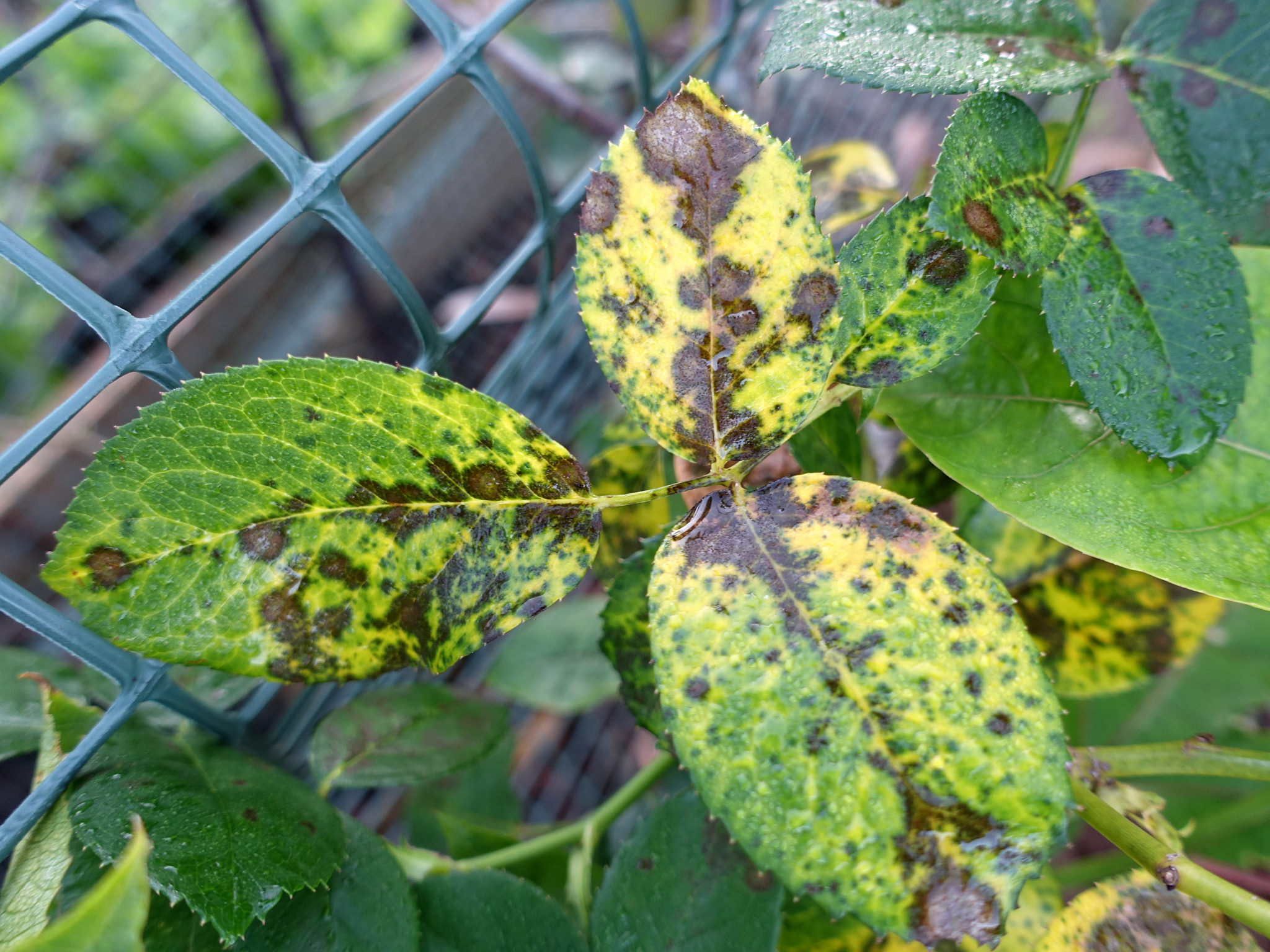

Black spot disease only attacks roses, but this widespread fungal foe touches every corner of the United States. Considered the country's most significant rose disease, black spot doesn't kill roses directly, but it causes their early demise just the same. Infected roses become stressed, weak, and vulnerable to other diseases and insects such as aphids and other common pests. Black spot also jeopardizes cold hardiness, increasing the likelihood of winter damage or death.
Like many fungal diseases, black spot needs spare water on plant surfaces to infect healthy roses and reproduce. Water, not wind, spreads the fungal spores. Extended periods of cool, wet days and nights in spring shift the disease into high gear. Overcrowded conditions and overhead watering helps the disease flourish. Warm, dry conditions slow black spot's spread, but don't stop it.
Black Spot Identification/Symptoms: The first hint of black spot's arrival in your rose garden comes in the form of dark, round leaf spots with irregular, feathered margins. Unlike many fungal diseases, black spot only strikes the top side of leaves, never the undersides. The lowest parts of the plant show symptoms first. Left unchecked, yellow areas surround the spots and expand to cover entire leaf. The disease worsens and moves up the plant, while infected foliage drops to the ground.
How to Control Black Spot: Once black spot becomes active, the only way to control the disease and stop its spread is with an effective fungicide. GardenTech® brand's Daconil® fungicides offer highly effective, three-way protection against black spot and more than 65 other types of fungal disease.
Start preventive treatment as soon as buds on rose canes begin to swell and break in spring. Repeat treatment every seven to 14 days until conditions no longer favor the disease. These Daconil® fungicides prevent black spot infection, stop and control active disease, and protect healthy rose tissue against black spot's spread:
- Daconil® Fungicide Ready-To-Use, in a grab-and-go spray bottle, is ideal for targeting the disease on individual roses or small garden areas. Spray all foliage and stems to the point of run off, with special attention to the oldest, lowest leaves.
- Daconil® Fungicide Concentrate, used with a hand-held, hose-end or tank-style sprayer, suits larger garden areas. The easy-to-use measuring cap simplifies the mixing process so you get just the amount you need. Spray all plant surfaces until thoroughly wet to control black spot and protect healthy tissue.
Black Spot Tip: Black spot overwinters on infected foliage and rose canes. Always prune away infected stems and dispose of the debris - never compost them. Disinfect your pruners with a household disinfectant after every use. Well-intended trims with dirty pruners spread the infection.
Always read product labels thoroughly and follow instructions, including application rates and frequencies.
GardenTech is a registered trademark of Gulfstream Home and Garden, Inc.
Daconil is a registered trademark of GB Biosciences Corp.


